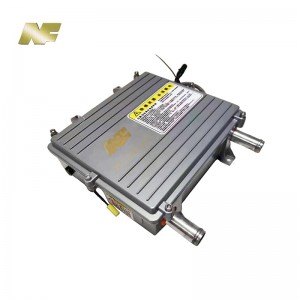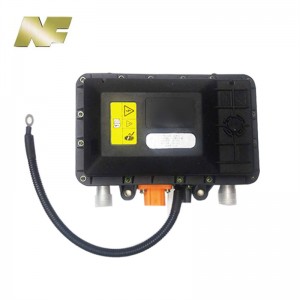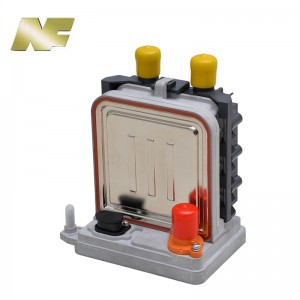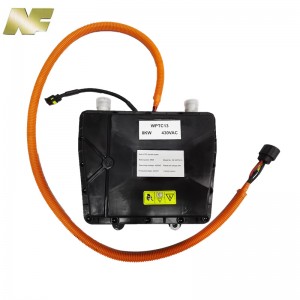The automotive industry is witnessing the introduction of advanced electric coolant heaters, a breakthrough that redefines vehicle heating systems. These cutting edge inventions include Electric Coolant Heater (ECH), HVC High Voltage Coolant Heater and HV Heater. They share a commitment to improving comfort, energy efficiency and sustainability in the automotive industry.
The Electric Coolant Heater (ECH) is a remarkable innovation that uses electricity to generate heat and heat a vehicle's engine and cabin. Designed for electric vehicles (EVs), this self-contained unit does not rely on engine combustion, an environmentally friendly solution that reduces emissions. By warming up the engine and cab, ECH ensures peak performance and faster warm-up times, improving overall energy efficiency.
Another notable member of the electric coolant heater family is the HVC High Voltage Coolant Heater. Developed especially for hybrid vehicles, this advanced heating system utilizes high-voltage power to quickly warm up the engine and cabin. By doing so, it improves fuel efficiency, reduces engine wear, and significantly lowers emissions. HVC high voltage coolant heaters mark a major step towards electrification in the automotive industry, contributing to a more sustainable future.
Additionally, the High Voltage Heater is another breakthrough in the field of electric coolant heating solutions. High voltage heaters are designed for conventional internal combustion engine (ICE) vehicles and operate independently of the vehicle's engine. Powered by electricity, this self-contained unit efficiently heats the engine and cab, eliminating the need to idle the engine to generate heat. By reducing unnecessary idling, high pressure heaters reduce fuel consumption and minimize environmental impact.
These electric coolant heaters offer many advantages to vehicle owners and the environment. First and foremost, they provide instant and continuous warmth in cold weather conditions, significantly improving passenger comfort. With their rapid warm-up capabilities, these innovations eliminate the need to withstand freezing conditions while waiting for the engine to warm up.
In addition, these heaters greatly improve the energy efficiency of the car. By providing a self-contained heating solution, they reduce the stress on the engine and minimize the energy waste associated with traditional heating systems. As a result, overall fuel consumption is reduced, increasing the range of electric vehicles and increasing the fuel efficiency of hybrid and internal combustion engine vehicles.
The environmental impact of vehicles equipped with electric coolant heaters is enormous. By operating independently of the engine, these heaters reduce CO2 emissions, ensure cleaner air quality and reduce your carbon footprint. Furthermore, these innovations are in line with the global push towards sustainable development, accelerating the shift towards greener transportation options.
With the advent of electric coolant heaters, automakers have a unique opportunity to enhance the competitiveness and attractiveness of their products. By providing advanced heating solutions, they meet consumer demands for increased comfort, reduced environmental impact and increased energy efficiency. Additionally, as governments around the world implement stricter emissions regulations, these innovations allow automakers to comply with these requirements while maintaining optimal vehicle performance.
The introduction of Electric Coolant Heaters (ECH), HVC High Voltage Coolant Heaters and HV Heaters marks a milestone moment in the automotive industry's quest for sustainable and efficient technologies. These solutions pave the way for a future in which vehicles not only deliver exceptional performance, but also prioritize passenger comfort while limiting environmental impact.
As global consumers become more conscious of sustainability, automakers must continue to invest in research and development to improve and improve electric coolant heaters. By adopting these innovative solutions, the automotive industry can redefine and transform vehicle heating systems, setting new benchmarks for comfort, efficiency and environmental responsibility.




Post time: Sep-10-2024




